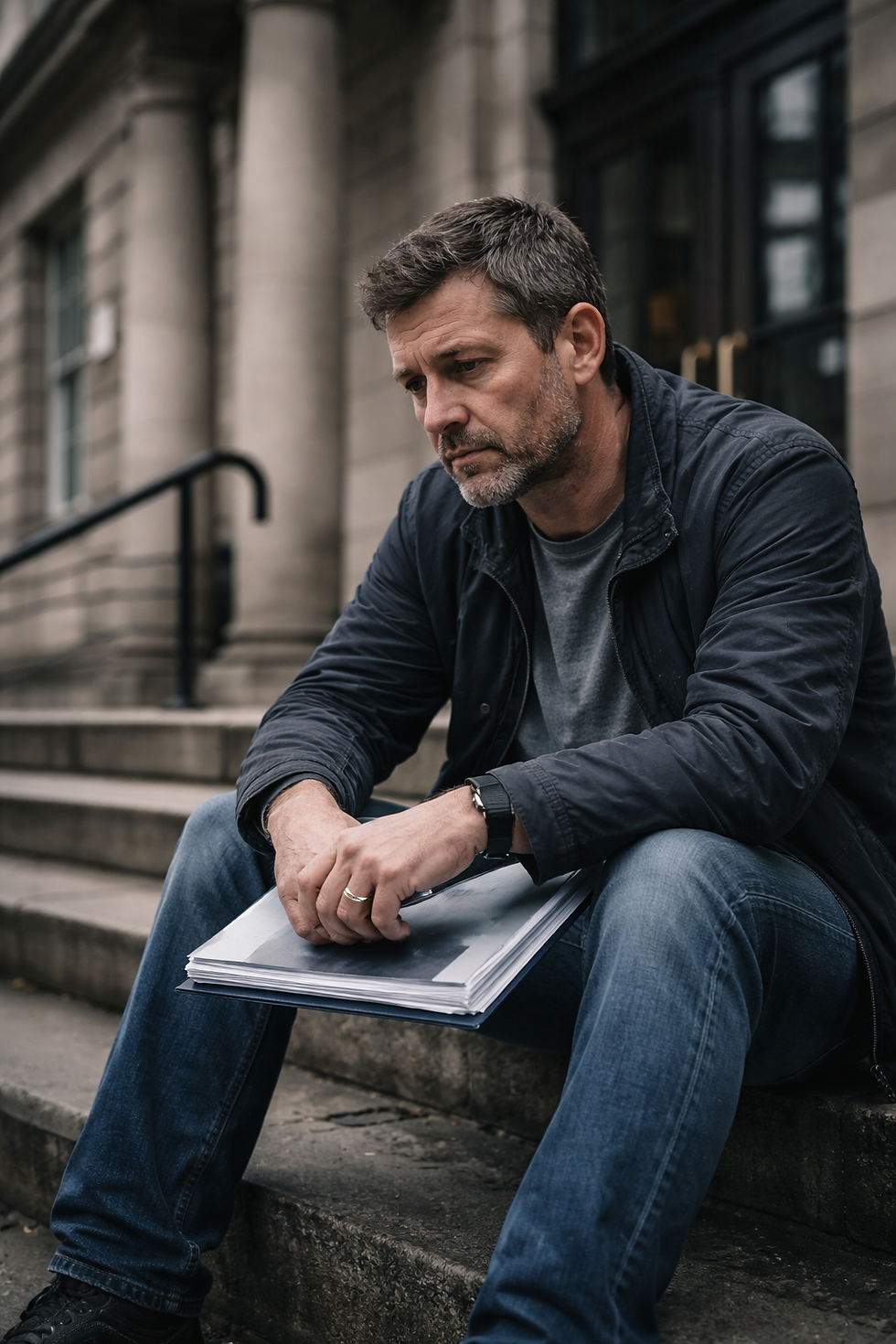Put Yourself in the Judge's Shoes
- Falsely Accused Network

- May 22, 2025
- 4 min read
By Michael Thompson, Founder of the Falsely Accused Network
I want to ask you to do something difficult. Really difficult.
I want you to try and put yourself in the shoes of a family court judge.

You're sat behind a desk in a courtroom, looking at two people who were once in a relationship. A man and a woman. They're now separated, and things have turned ugly. You're being asked to make decisions that could change their lives – and the lives of their children – forever.
The woman is making serious allegations. She says the man has abused her. It could be emotional abuse, controlling behaviour, financial abuse, physical violence, sexual assault. Or all of the above. She's confident in her account. She says she’s lived in fear. She’s written a statement, she has some texts and photos, and she’s tearful when she speaks.
The man is calm but visibly distressed. He says none of it happened. That she’s lying. That she’s weaponising the court system to hurt him – maybe to get custody of the children, or to punish him for leaving. He has no criminal record. He’s passed police checks. He says he’s never laid a finger on her, never threatened her, never abused her in any way.
And here’s the truth you don’t always hear:
> The judge has no idea who is telling the truth.
Not a clue.
They weren't there. They didn’t see what happened behind closed doors. They didn’t hear the arguments, witness the relationship, or live in that house. They don’t know what happened. One person is telling the truth. The other isn’t. And the court has to work out which is which.
---
Balance of Probabilities: A Lower Standard, A Bigger Risk
In criminal court, the standard of proof is beyond reasonable doubt. But in the family court, it’s the balance of probabilities. That means: is it more likely than not that something happened? Just 51% certainty is enough.
That matters – because when you’re dealing with allegations of abuse, that 1% tipping point can be the difference between a parent seeing their children or being cut out of their lives entirely.
That lower threshold means the court can – and often does – err on the side of caution. Judges are human. They're under pressure. Nobody wants to take the risk of allowing contact with someone who might pose a danger, even if the evidence is thin or contradictory.
The culture leans heavily towards “better safe than sorry.”
But here's the uncomfortable reality:
> Sometimes, that caution hurts innocent people.
Sometimes, a man loses contact with his child not because there’s proof he did something wrong, but because it might have happened. Because someone made an allegation, and on the balance of probabilities, the judge decided to believe it.
It’s hard to accept, but vital to understand: in many of these cases, there is no hard evidence. No witnesses. No bruises. No police convictions. Just words. And yet those words, if accepted by the court, can lead to life-changing decisions — restricted contact, supervised access, or no contact at all.
---
What If He’s Telling the Truth?
So I want you to ask yourself: what if it didn’t happen?
What if you, as a judge, get it wrong?
What if the person in front of you, denying the allegations with everything they have, is telling the truth – but loses their relationship with their children forever because they couldn’t prove a negative?
This isn’t about blaming judges. Many are doing their best in an impossible situation. They’re given limited time, mountains of paperwork, and the emotional weight of having to decide which parent is dangerous and which one is safe.
That’s an almost impossible task – especially when the court is told to assume nothing, but still make a decision.
---
A Call for Humility and Balance
This is about recognising that truth doesn’t always reveal itself clearly.
That one side is lying, and it’s not always easy to tell who.
That rushing to judgment – even with the best intentions – can destroy innocent lives.
It’s also a reminder for everyone watching from the outside: don’t assume. Don’t jump to conclusions. Just because someone’s been accused doesn’t mean they’re guilty. Just because someone cries in court doesn’t mean they’re telling the truth. And just because a judge made a ruling doesn’t mean they got it right.
The family court is full of pain, uncertainty, and irreversible outcomes. Let’s never forget that sometimes, the person telling the truth walks out with nothing.
At Falsely Accused Network, we provide vital support to anyone in England and Wales who has been falsely accused of domestic abuse. Our confidential helpline and online community offer practical guidance, emotional reassurance, and we can link you up with trusted legal professionals and McKenzie friends.Whether you're at the start of the process or navigating complex legal challenges, you don’t have to face it alone.
Visit www.falselyaccusednetwork.co.uk or call us on 0204 538 8788 to get the support you deserve.



Comments